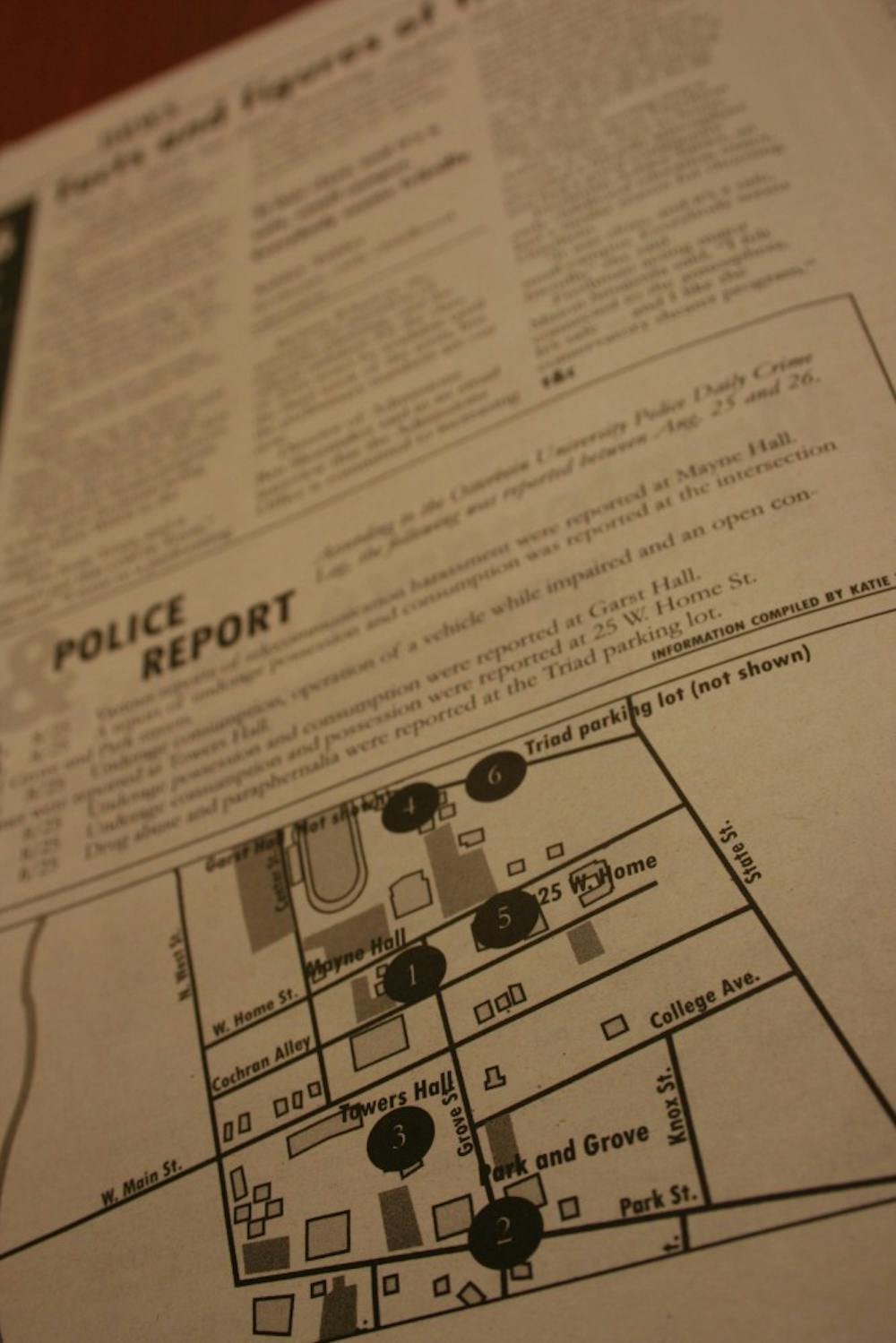Please read the headline.
Now, please read the line in italics below it.
Now, let us explain:
As you will read in the news section of this newspaper, the Otterbein Police Department has issued a public information policy to student media that cites case law from 2006 that, in its opinion, rules it ineligible for the Ohio Public Records and Open Meetings Laws.
This means that the police report in the Tan & Cardinal has been reduced to one sentence or phrase explanations to the crimes that are reported around campus each week.
This means that we can’t tell you if the sexual assault that was reported in Garst Hall Sept. 5 involved two Otterbein students or an outsider.
We don’t know if the suspect was caught or if the case was dropped. We don’t know if the suspect was charged criminally and now has a record or if he or she was only given a misconduct violation through the university, which would not go on a record.
We don’t know what it means that a “physical assault” was reported behind Garst Hall last week. Was it a fight? Did a student get jumped by the suspect, who was described as a “40-to-50-year-old white male,” and then beat up? Did someone get shoved? All of the above could be reported as an assault.
We don’t know if any future reports of disorderly conduct that will appear in the report mean a fight or simply an intoxicated student who can’t get back into his or her dorm.
We don’t, and will not know, any of that. In any other situation, you would certainly be able to know.
The federally mandated log that documents these crimes as they happen will still be available to everyone on the police’s section of the Otterbein website.
This is not to say that we, as student media, will stop looking at that log and stop asking for information on campus crime. But as far as police reports go, the police say they aren’t public record because the police is a private entity of Otterbein.
This isn’t exactly a surprise because Otterbein is a private school and says as a whole, it is not subject to public records laws.
Most information here has always been protected.
However, previously, the OPD was only a security department, and all crimes were documented by the Westerville Police Division, who hold public records.
Now that the Otterbein Security Department underwent Ohio Peace Officer Training, it simply shares a dispatch line with the WPD and is handling crimes on its own.
But what we don’t understand is how this 2006 case actually applies to OPD and therefore exempts it from the law that its campus law-enforcement predecessor, the WPD, had to abide by.
The precedent set in this case, titled Oriana House Inc. v. Montgomery, says that a private organization is the functional equal of a public organization only if 1) the entity performs a government function, 2) is regulated by the government, 3) has a certain level of government funding, or 4) was created by the government or to avoid the requirements of the Ohio Public Records Act.
By all means, no one on this staff thinks Otterbein cooked up a plan to have a police force to avoid the Ohio Public Records Act. The department is partly staffed by former Columbus
police and Highway Patrol officers — they have sworn to protect and serve in their lifetimes.
However, they, as law officers, perform a governmental function.
They, as an entity of Otterbein, receive federal funding because Otterbein receives thousands of dollars of it.
They, as former security officers, received Peace Officer Training from Ohio to become certified police officers.
How is this disputable?
Larry Banaszak, chief of Otterbein police, said that his team will be willing to release some information, but it will be determined on a case-by-case basis.
“The administration feels that it’s important to be sensitive to alleged victims and alleged suspects,” he said. “It’s really difficult to give you a 100 percent black and white answer on some of these issues.”
Not only does the admini-stration feel that way, but we as a newspaper do too. That’s why we never publish names, or even pronouns, in our articles until real charges are filed — and not even then, in the case of a sexual assault.
But to us it is equally important to inform the public of information it can use in the case of crimes.
Rave Alert messages are useful, but they don’t tell the whole story. Let us do that. That’s why we’re here; that’s why we’re studying to be members of the nonstudent media. Let us keep this campus informed.








